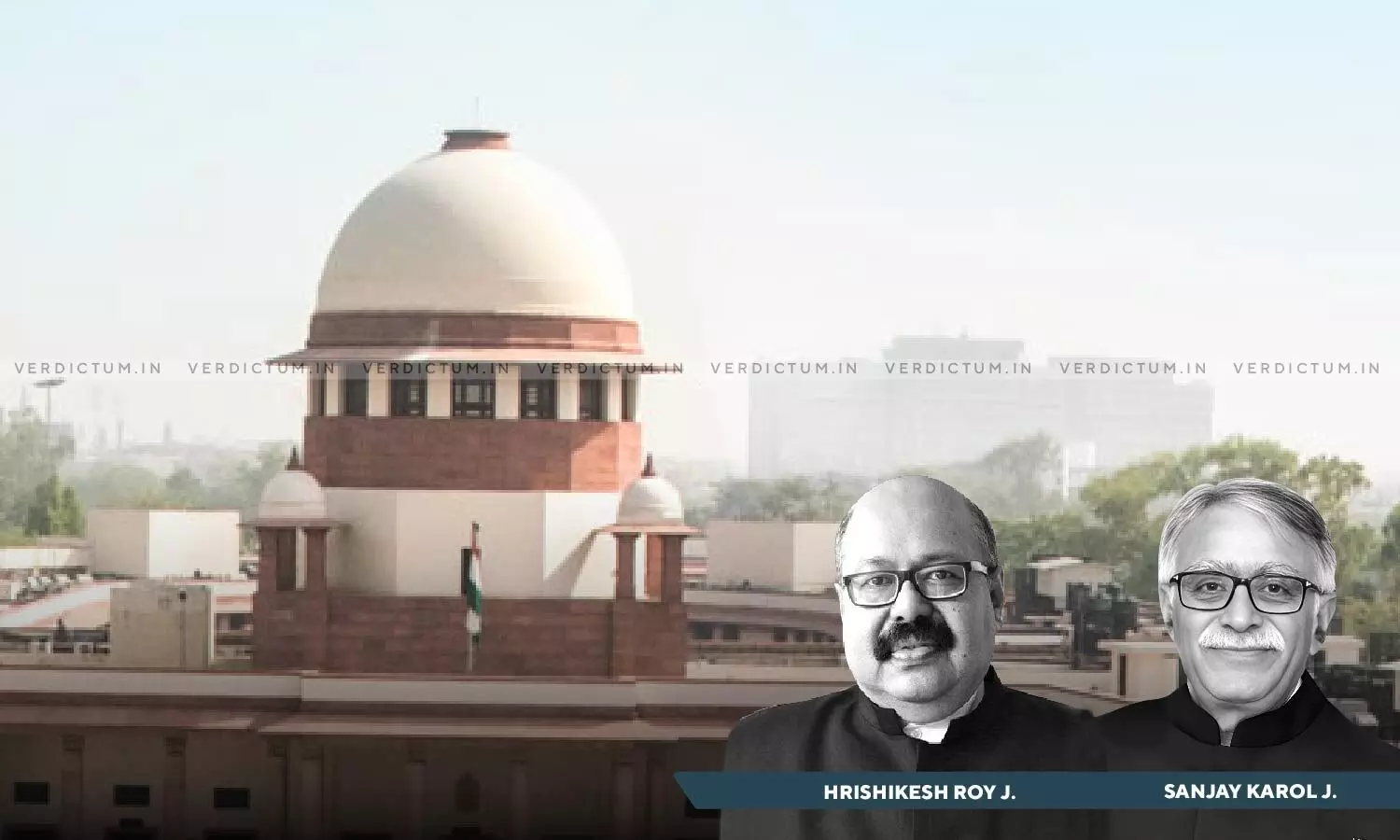
NI Act- Accused Can Utilize Complainant's Materials Alongside Their Own Evidence To Establish A Probable Defense: Apex Court
 |
|The Supreme Court recently reiterated that to challenge the assumption made under Section 139 of the Negotiable Instruments Act, 1881, the accused can use not only their own evidence but also the information or the material presented by the complainant to build a plausible defence.
The Bench of Justice Hrishikesh Roy and Justice Sanjay Karol were dealing with a Criminal Appeal which challenged the Madras High Court's order upholding the judgment passed by the Trial Court of acquittal in favour of the respondent. The Court, while considering the merits of the case, noted that the primary basis for the view taken by the two Courts below was the failure of the complainant to prove his financial capacity to advance the loan amount.
Advocate P. V. Yogeswaran along with Advocate-on-Record Akshat Srivastava appeared for the Appellant while the Court had appointed Advocate Rucha Pande as Amicus Curiae.
Background: The Trial Court had acquitted the Respondents noting a significant fact that the complainant to show his financial capacity had indicated that he had borrowed Rs.8,00,000/- from his mother to advance Rs.8,00,000/- loan to the accused but the the mother herself was not produced as a witness in the proceeding.
The accused were also acquitted on the ground that the sale transaction of May 31, 2023, which was made the basis for money coming into the hand of the complainant’s mother, was cancelled subsequently on May 13, 2015, and as such there was no concluded transaction which will justify any money in the hand of complainant’s mother.
Even the case filed against one of the accused under 138 of the Negotiable Instruments was dismissed primarily on the grounds that the complainant failed to produce his income document. The High Court also affirmed the judgment of acquittal favouring the accused in the proceeding under Section 138 of the NI Act. Being aggrieved, the complaint approached the Apex Court.
However, refusing to interfere, the Court noted, "It is well settled that to rebut the presumption under Section 139 of Negotiable Instruments Act, 1881, it is open to the accused to not only rely on the evidence led by him but he can also rely on the materials submitted by the complainant, in order to raise a probable defence."
The Court also noted the ratio in Basalingappa vs Mudibasappa reported in (2019) 5 SCC 418, which was relied upon by the accused to say that the complainant here failed to discharge his burden. The Court in its order noted, "The relevant paragraph is extracted hereasunder:- 25.3. To rebut the presumption, it is open for the accused to rely on evidence led by him or the accused can also rely on the materials submitted by the complainant in order to raise a probable defence. Inference or preponderance of probabilities can be drawn not only from the materials brought on record by the parties but also by reference to the circumstances upon which they rely.”
The Court accordingly dismissed the Appeal. "The submission made by the rival counsel are considered. We have also perused the basis on which the High Court has affirmed the judgment of acquittal favouring the accused in the proceeding under Section 138 of the NI Act. In the absence of any infirmity, we see no reason to entertain the appeal. The appeal is, accordingly, dismissed leaving the parties to bear their own costs", noted the order.
Cause Title: S. Murugan v. M.K. Karunagaran [SLP (Crl.) 7618/2023]